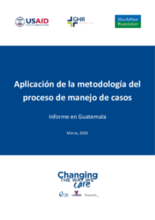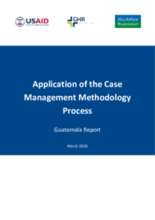This page contains documents and other resources related to children's care in the Americas. Browse resources by region, country, or category.
Displaying 1001 - 1010 of 3197
This volume provides an in-depth examination of the history and goals of the foster care system in the US, how and why it fails to adequately meet children’s needs, and what it would take to actualize meaningful improvements in children’s experiences and outcomes.
This chapter provides a review and analysis of the “best interests of the child” standard in foster care policy and practice.
This survey of the statutory provisions and case law of all 50 states [of the USA] and the District of Columbia includes the rights of children to parental support, inheritance, and familial association remaining upon termination of parental rights.
This study examines the effects of child welfare, mental health, and drug/alcohol system experiences on jail involvement, as mediated by juvenile justice placement, for Black and White youth/young adults.
This article explores contemporary Muslim Americans’ negotiations of Islamic law to find ethical ways to care for non-biological children within their household.
Este documento presenta el proceso, los resultados y las lecciones aprendidas durante la implementación de una iniciativa en Guatemala que instale buenas prácticas para la prevención de la separación familiar innecesaria y el fortalecimiento de las familias a través de las búsqueda y acercamiento de servicios sociales primarios y especializados.
This document presents a summary of the process, results and lessons learned during a demonstration project in the department of Zacapa, Guatemala to implement best practices to prevent unnecessary family separation and strengthen families by identifying primary and specialized social services and bringing those services closer to the families.
En este informe se presentan los resultados de la investigación llevada adelante en Argentina que tuvo por objetivo construir información sobre las principales políticas, medidas y acciones que se desarrollan a nivel regional orientadas a acompañar el egreso de adolescentes y jóvenes del sistema del cuidados alternativos e indagar respecto de su eficacia, efectividad, sostenibilidad y adecuación a un enfoque de derechos.
En este informe se presentan los resultados de la investigación llevada adelante en Perú que tuvo por objetivo construir información sobre las principales políticas, medidas y acciones que se desarrollan a nivel regional orientadas a acompañar el egreso de adolescentes y jóvenes del sistema de cuidados alternativos e indagar respecto de su eficacia, efectividad, sostenibilidad y adecuación a un enfoque de derechos.





